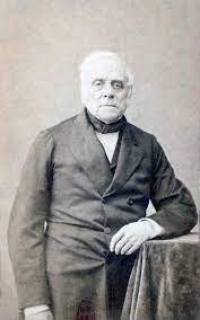Latest Sheet Music
Traditional

traditional music
John Lennon

John Winston Ono Lennon, MBE (born John Winston Lennon; October 9, 1940 – December 8, 1980) was an English rock musician, singer, songwriter, artist, and peace activist who gained worldwide fame as one of the founding members of The Beatles. As a member of the group, Lennon was one of the lead vocalists and co-wrote many of the band's songs with Paul McCartney.
In his solo career, Lennon wrote and recorded songs such as "Give Peace a Chance" and "Imagine". Lennon revealed his rebellious nature and wit on television, in films such as A Hard Day's Night, in books such as In His Own Write, and in press conferences and interviews. He was controversial through his work as a peace activist, artist, and author.
Lennon had two sons: Julian Lennon, with his first wife Cynthia Lennon, and Sean Ono Lennon, with his second wife, avant-garde artist Yoko Ono. After a self-imposed retirement from 1976 to 1980, Lennon reemerged with a comeback album, but was murdered one month later in New York City on 8 December 1980. In 2002, respondents to a BBC poll on the 100 Greatest Britons voted Lennon into eighth place. In 2004, Rolling Stone magazine ranked Lennon number 38 on its list of "The Immortals: The Fifty Greatest Artists of All Time" and ranked The Beatles at number one.
In his solo career, Lennon wrote and recorded songs such as "Give Peace a Chance" and "Imagine". Lennon revealed his rebellious nature and wit on television, in films such as A Hard Day's Night, in books such as In His Own Write, and in press conferences and interviews. He was controversial through his work as a peace activist, artist, and author.
Lennon had two sons: Julian Lennon, with his first wife Cynthia Lennon, and Sean Ono Lennon, with his second wife, avant-garde artist Yoko Ono. After a self-imposed retirement from 1976 to 1980, Lennon reemerged with a comeback album, but was murdered one month later in New York City on 8 December 1980. In 2002, respondents to a BBC poll on the 100 Greatest Britons voted Lennon into eighth place. In 2004, Rolling Stone magazine ranked Lennon number 38 on its list of "The Immortals: The Fifty Greatest Artists of All Time" and ranked The Beatles at number one.
John Kemp
Johnny Kemp (August 2, 1959 – April 16, 2015) was a Bahamian singer, songwriter, and record producer. He began his career as a songwriter in late 1979 and is perhaps best known for his solo work, including his single "Just Got Paid" (1988), which was nominated for a Grammy Award for Best R&B Song in 1989.
Luis Liborio
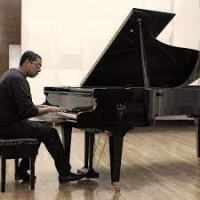
Luis Liborio was a musician, composer and performer of popular music born in the Dominican Republic.
Bach

Johann Sebastian Bach (31 March 1685 – 28 July 1750) was a German composer and organist whose sacred and secular works for choir, orchestra, and solo instruments drew together the strands of the Baroque period and brought it to its ultimate maturity. Although he introduced no new forms, he enriched the prevailing German style with a robust contrapuntal technique, an unrivalled control of harmonic and motivic organisation in composition for diverse musical forces, and the adaptation of rhythms and textures from abroad, particularly Italy and France.
Revered for their intellectual depth and technical and artistic beauty, Bach's works include the Brandenburg concertos; the Goldberg Variations; the English Suites, French Suites, Partitas, and Well-Tempered Clavier; the Mass in B Minor; the St. Matthew Passion; the St. John Passion; The Musical Offering; The Art of Fugue; the Sonatas and Partitas for violin solo; the Cello Suites; more than 200 surviving cantatas; and a similar number of organ works, including the celebrated Toccata and Fugue in D Minor.
While Bach's fame as an organist was great during his lifetime, he was not particularly well-known as a composer. His adherence to Baroque forms and contrapuntal style was considered "old-fashioned" by his contemporaries, especially late in his career when the musical fashion tended towards Rococo and later Classical styles. A revival of interest and performances of his music began early in the 19th century, and he is now widely considered to be one of the greatest composers in the Western tradition.
Revered for their intellectual depth and technical and artistic beauty, Bach's works include the Brandenburg concertos; the Goldberg Variations; the English Suites, French Suites, Partitas, and Well-Tempered Clavier; the Mass in B Minor; the St. Matthew Passion; the St. John Passion; The Musical Offering; The Art of Fugue; the Sonatas and Partitas for violin solo; the Cello Suites; more than 200 surviving cantatas; and a similar number of organ works, including the celebrated Toccata and Fugue in D Minor.
While Bach's fame as an organist was great during his lifetime, he was not particularly well-known as a composer. His adherence to Baroque forms and contrapuntal style was considered "old-fashioned" by his contemporaries, especially late in his career when the musical fashion tended towards Rococo and later Classical styles. A revival of interest and performances of his music began early in the 19th century, and he is now widely considered to be one of the greatest composers in the Western tradition.
Angel Villoldo

Ángel Gregorio Villoldo Arroyo (16 February 1861 – 14 October 1919) was an Argentine musician and one of the pioneers of tango music. He was lyricist, composer, and one of the major singers of the era. He is also known by the pseudonyms A. Gregorio, Fray Pimiento, Gregorio Giménez, Angel Arroyo, and Mario Reguero. Villoldo transformed the Spanish tanguillos, the cuplés, and the habaneras, turning the continental genres into native Argentinian rhythms.
Heinz Provost
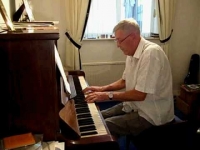
Ferdinand Heinrich Proboscht was born in Vienna, Austria in 1890 or 1891 (sources vary). Provost was in Sweden when a competition was held for a piece of music to be used in the film Intermezzo (1936). He won with his composition "Souvenir of Vienna" which was renamed "Intermezzo" to tie in with the film.
Koji Kondo

Koji Kondo (近藤浩治 Kondō Kōji?, born August 13, 1960) is a Japanese video game composer and sound director who has been employed at Nintendo since 1984. He is best known for scoring numerous titles in the Mario and The Legend of Zelda series.
Bela Bartok

Béla Viktor János Bartók (pronounced /ˈbɑrtɒk/ (Wells 1990), Hungarian pronunciation: ) (March 25, 1881 – September 26, 1945) was a Hungarian composer and pianist. He is considered to be one of the greatest composers of the 20th century and is regarded, along with Liszt, as his country's greatest composer (Gillies 2001). Through his collection and analytical study of folk music, he was one of the founders of ethnomusicology.
Robson Dos Santos
Robson Dos Santos Musical artist Songs The Missing Music lullaby and other music · 2003 Lullaby lullaby and other music · 2003 Mermaids only sing in minor keys lullaby and other music · 2003
Dave Baker

David Nathaniel Baker Jr. was an American jazz composer, conductor, and musician from Indianapolis, as well as a professor of jazz studies at the Indiana University Jacobs School of Music. Baker is best known as an educator and founder of the jazz studies program.
Rush
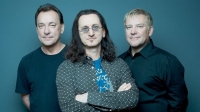
Rush was a Canadian rock band consisting of Geddy Lee (bass, vocals, keyboards), Alex Lifeson (guitars), and Neil Peart (drums, percussion). Formed in 1968, the band went through several configurations until arriving at its longest and classic line-up when Peart replaced original drummer John Rutsey in July 1974, two weeks before the group's first tour of the United States.
Rush is known for its musicianship, complex compositions, and eclectic lyrical motifs drawing heavily on science fiction, fantasy, and philosophy. The band's musical style has changed several times over the years, from a blues-inspired hard rock beginning, later moving into progressive rock, and including a period marked by heavy use of synthesizers. In the early 1990s, Rush returned to a guitar-driven hard rock sound, which continued for the rest of their career. Rush announced plans to cease large-scale touring at the end of 2015, following the conclusion of their R40 Live Tour. After nearly three years of an uncertain future, Lifeson reluctantly announced in January 2018 that the band was not going to continue.
Rush is known for its musicianship, complex compositions, and eclectic lyrical motifs drawing heavily on science fiction, fantasy, and philosophy. The band's musical style has changed several times over the years, from a blues-inspired hard rock beginning, later moving into progressive rock, and including a period marked by heavy use of synthesizers. In the early 1990s, Rush returned to a guitar-driven hard rock sound, which continued for the rest of their career. Rush announced plans to cease large-scale touring at the end of 2015, following the conclusion of their R40 Live Tour. After nearly three years of an uncertain future, Lifeson reluctantly announced in January 2018 that the band was not going to continue.
Thao Nguyen Xanh

Thao Nguyen (born March 19, 1984), also known as Thao, is an American singer-songwriter originally from Virginia and now based in San Francisco. She is the lead musician of the band Thao & the Get Down Stay Down, and has collaborated with Joanna Newsom and Andrew Bird. Outside of the band she has collaborated on projects with several artists including Merrill Garbus, The Portland Cello Project, and Mirah. Her music is influenced by folk, country, and hip hop.
Vivaldi

Antonio Lucio Vivaldi (March 4, 1678 â July 28, 1741), nicknamed il Prete Rosso ("The Red Priest"), was a Venetian priest and Baroque music composer, as well as a famous virtuoso violinist; he was born and raised in the Republic of Venice. The Four Seasons, a series of four violin concerti, is his best-known work and a highly popular Baroque piece.
Many of Vivaldi's compositions reflect a flamboyant, almost playful, exuberance. Most of Vivaldi's repertoire was rediscovered only in the first half of the 20th century in Turin and Genoa and was published in the second half. Vivaldi's music is innovative, breaking a consolidated tradition in schemes; he gave brightness to the formal and the rhythmic structure of the concerto, repeatedly looking for harmonic contrasts and innovative melodies and themes. Moreover, Vivaldi was able to compose nonacademic music, particularly meant to be appreciated by the wide public and not only by an intellectual minority. The joyful appearance of his music reveals in this regard a transmissible joy of composing; these are among the causes of the vast popularity of his music. This popularity soon made him famous in other countries such as France which was, at the time, very independent concerning its musical taste.
Vivaldi is considered one of the composers who brought Baroque music (with its typical contrast among heavy sonorities) to evolve into a classical style. Johann Sebastian Bach was deeply influenced by Vivaldi's concertos and arias (recalled in his Johannes Passion, Matthäuspassion, and cantatas). Bach transcribed a number of Vivaldi's concerti for solo keyboard, along with a number for orchestra, including the famous Concerto for Four Violins and Violoncello, Strings and Continuo (RV 580).
Many of Vivaldi's compositions reflect a flamboyant, almost playful, exuberance. Most of Vivaldi's repertoire was rediscovered only in the first half of the 20th century in Turin and Genoa and was published in the second half. Vivaldi's music is innovative, breaking a consolidated tradition in schemes; he gave brightness to the formal and the rhythmic structure of the concerto, repeatedly looking for harmonic contrasts and innovative melodies and themes. Moreover, Vivaldi was able to compose nonacademic music, particularly meant to be appreciated by the wide public and not only by an intellectual minority. The joyful appearance of his music reveals in this regard a transmissible joy of composing; these are among the causes of the vast popularity of his music. This popularity soon made him famous in other countries such as France which was, at the time, very independent concerning its musical taste.
Vivaldi is considered one of the composers who brought Baroque music (with its typical contrast among heavy sonorities) to evolve into a classical style. Johann Sebastian Bach was deeply influenced by Vivaldi's concertos and arias (recalled in his Johannes Passion, Matthäuspassion, and cantatas). Bach transcribed a number of Vivaldi's concerti for solo keyboard, along with a number for orchestra, including the famous Concerto for Four Violins and Violoncello, Strings and Continuo (RV 580).
Earth Wind & Fire
Earth, Wind & Fire (abbreviated as EW&F or simply EWF) is an American band that has spanned the musical genres of R&B, soul, funk, jazz, disco, pop, rock, dance, Latin, and Afro pop. They have been described as one of the most innovative and commercially successful acts of all time. Rolling Stone called them "innovative, precise yet sensual, calculated yet galvanizing" and declared that the band "changed the sound of black pop". VH1 has also described EWF as "one of the greatest bands" ever.
Pablo Casals

Pau Casals i Defilló (Catalan: ; 29 December 1876 – 22 October 1973), usually known in English by his Spanish name Pablo Casals, was a Catalan and Puerto Rican cellist, composer, and conductor. He is generally regarded as the pre-eminent cellist of the first half of the 20th century and one of the greatest cellists of all time. He made many recordings throughout his career of solo, chamber, and orchestral music, including some as conductor, but he is perhaps best remembered for the recordings of the Bach Cello Suites he made from 1936 to 1939. He was awarded the Presidential Medal of Freedom in 1963 by President John F. Kennedy (though the ceremony was presided over by Lyndon B. Johnson).
Michael Schmid

Michael Schmid is a musician and flutist specializing in contemporary experimental music. A fixed member of the Belgian Ictus Ensemble and as freelancer he has worked with most of the major European New Music Ensembles as chamber musician and soloist.
Michio Miyagi
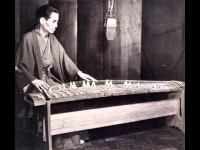
Michio Miyagi was a Japanese musician, famous for his koto playing. He was born in Kobe. He lost his sight in 1902, when he was 8 years old, and started his study in koto under the guidance of Nakajima Kengyo II, dedicating the rest of his life to the instrument.
Wedding Collection
Piano Solo Songbook Piano solo arrangements of 25 classical favorites for weddings. Includes: Air on the G String * Bridal Chorus * Canon in D * Jesu, Joy of Man's Desiring * Ode to Joy * Rondeau * Sheep May Safely Graze * Trumpet Voluntary * Wedding March * more.
Marcelo Morales Torcato

Marcelo Morales Torcato Composer, Piano Player.
Robert Glasper
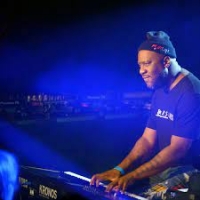
Robert Andre Glasper (born April 6, 1978) is an American pianist, record producer, songwriter and musical arranger with a career that bridges musical and artistic genres. To date, Glasper has won four Grammy Awards and received nine nominations across eight categories. He also won the 2017 Primetime Emmy Award for Outstanding Original Music and Lyrics for his song featured in Ava DuVernay’s critically hailed documentary, 13th, with Common and Karriem Riggins.
Kathy and David Blackwell
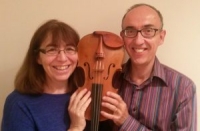
Kathy and David Blackwell have published over 60 books for young string players with Oxford University Press, including the progressive repertoire and technique books of the Fiddle, Viola, and Cello Time series, and books of pieces for junior string ensemble.
Franz Schubert

Franz Peter Schubert (German pronunciation: ; January 31, 1797 – November 19, 1828) was an Austrian composer. He wrote some 600 Lieder, nine symphonies (including the famous "Unfinished Symphony"), liturgical music, operas, some incidental music, and a large body of chamber and solo piano music. He is particularly noted for his original melodic and harmonic writing.
Schubert was born into a musical family, and received formal musical training through much of his childhood. While Schubert had a close circle of friends and associates who admired his work (amongst them the prominent singer Johann Michael Vogl), wide appreciation of his music during his lifetime was limited at best. He was never able to secure adequate permanent employment, and for most of his career he relied on the support of friends and family. He made some money from published works, and occasionally gave private musical instruction. In the last year of his life he began to receive wider acclaim. He died at the age of 31 of "typhoid fever", a diagnosis which was vague at the time; several scholars suspect the real illness was tertiary syphilis.
Interest in Schubert's work increased dramatically in the decades following his death. Composers like Franz Liszt, Robert Schumann and Felix Mendelssohn discovered, collected, and championed his works in the 19th century, as did musicologist Sir George Grove. Franz Schubert is now widely considered to be one of the greatest composers in the Western tradition.
Schubert was born into a musical family, and received formal musical training through much of his childhood. While Schubert had a close circle of friends and associates who admired his work (amongst them the prominent singer Johann Michael Vogl), wide appreciation of his music during his lifetime was limited at best. He was never able to secure adequate permanent employment, and for most of his career he relied on the support of friends and family. He made some money from published works, and occasionally gave private musical instruction. In the last year of his life he began to receive wider acclaim. He died at the age of 31 of "typhoid fever", a diagnosis which was vague at the time; several scholars suspect the real illness was tertiary syphilis.
Interest in Schubert's work increased dramatically in the decades following his death. Composers like Franz Liszt, Robert Schumann and Felix Mendelssohn discovered, collected, and championed his works in the 19th century, as did musicologist Sir George Grove. Franz Schubert is now widely considered to be one of the greatest composers in the Western tradition.
Béla Kovács

Béla Kovács (born May 1, 1937 in Tatabánya, Hungary) is a Hungarian clarinetist.He graduated from the Franz Liszt Academy of Music in Budapest, Hungary.He was principal clarinetist with the Hungarian State Opera Orchestra and the Budapest Philharmonic Orchestra since 1956, until he retired in 1981.Kovács has been a Professor of Clarinet at the Franz Liszt Academy of Music in Budapest and at the University of Music and Dramatic Arts in Graz, Austria. He has also composed a set of concert etudes for clarinet called "Hommages" that are written in the style of a number of different composers and are studied and/or performed widely today.
Clarence Smith
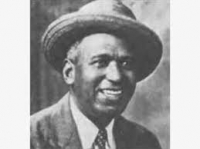
Clarence Smith, better known as Pinetop Smith or Pine Top Smith, was an American boogie-woogie style blues pianist. His hit tune "Pine Top's Boogie Woogie" featured rhythmic "breaks" that were an essential ingredient of ragtime music, but also a fundamental foreshadowing of rock & roll.
Boris Pigovat

Boris Pigovat is an Israeli composer. Many of his works have been performed throughout the world. He studied at Gnessin Music Institute in Moscow. Between 1978 and 1990 he lived in Tajikistan, and immigrated to Israel in 1990. In 2002 he received his Ph.D. degree from Bar-Ilan University.
Stephen Partridge
Stephen Partridge attended Maidstone College of Art and the Royal College of Art. He was in the "landmark" video shows of the 1970s including "The Video Show" at the Serpentine in 1975, the "Video Show" at the Tate Gallery London in 1976 (where he exhibited the installation "8x8x8" ), the Paris Biennalle in 1977 and The Kitchen in New York in 1979. During the eighties he exhibited widely and also became interested in works for broadcast television and was commissioned by Channel 4 television to produce "Dialogue for Two Players" in 1984, and "The Sounds of These Words", again for Channel 4 in 1989. The latter work was one of 19 productions for Channel 4 produced by his production company Fields and Frames Productions, under the series title TV Interventions which were designed to intervene in the broadcast schedule. Other commissioned artists included David Hall, Bruce McLean, David Cunningham, Ian Breakwell
niccolò paganini

Niccolò (or Nicolò) Paganini (Italian: (About this soundlisten); 27 October 1782 – 27 May 1840) was an Italian violinist, violist, guitarist, and composer. He was the most celebrated violin virtuoso of his time, and left his mark as one of the pillars of modern violin technique. His 24 Caprices for Solo Violin Op. 1 are among the best known of his compositions, and have served as an inspiration for many prominent composers.
Blood Sweat & Tears
Blood, Sweat & Tears is a Canadian-American jazz-rock music group. They are noted for their combination of brass and rock band instrumentation. The group recorded songs by rock/folk songwriters such as Laura Nyro, James Taylor, the Band and the Rolling Stones as well as Billie Holiday and Erik Satie
Malcolm Arnold

Sir Malcolm Henry Arnold CBE (21 October 1921 – 23 September 2006) was an English composer. His works feature music in many genres, including a cycle of nine symphonies, numerous concertos, concert works, chamber music, choral music and music for brass band and wind band. His style is tonal and rejoices in lively rhythms, brilliant orchestration, and an unabashed tunefulness. He wrote extensively for the theatre, with five ballets specially commissioned by the Royal Ballet, as well as two operas and a musical. He also produced scores for more than a hundred films, among these The Bridge on the River Kwai (1957), for which he won an Oscar.
Johann Strauss

Johann Strauss I (March 14, 1804 – September 25, 1849; German: Johann Baptist Strauß, Johann Strauss (Vater); also Johann Baptist Strauss, Johann Strauss, Sr., the Elder, the Father), born in Vienna, was an Austrian Romantic composer famous for his waltzes, and for popularizing them alongside Joseph Lanner, thereby setting the foundations for his sons to carry on his musical dynasty. His most famous piece is probably the Radetzky March (named after Joseph Radetzky von Radetz), while his most famous waltz is probably the Lorelei Rheinklänge, Op. 154.
Johann Friedrich Fasch

Johann Friedrich Fasch (15 April 1688 – 5 December 1758) was a German violinist and composer.Fasch was born in the town of Buttelstedt, 11 km north of Weimar, the eldest child of schoolmaster Friedrich Georg Fasch and his wife Sophie Wegerig, from Leißling near Weißenfels. After his father's death in 1700, Fasch lived with his mother's brother, the clergyman Gottfried Wegerig in Göthewitz, and it was presumably in this way that he made the acquaintance of the Opera composer Reinhard Keiser.His works include cantatas, concertos, symphonies, and chamber music. None of his music was published in his lifetime, and according to The New Grove Dictionary of Music and Musicians in 2014, "it appears that most of his vocal works (including 9 complete cantata cycles, at least 14 masses and four operas) are lost, while the instrumental works are mostly extant.
Adolphe Adam

Adolphe Charles Adam (French: ; 24 July 1803 – 3 May 1856) was a French composer and music critic. A prolific composer of operas and ballets, he is best known today for his ballets Giselle (1841) and Le corsaire (1856, his last work), his operas Le postillon de Lonjumeau (1836), Le toréador (1849) and Si j'étais roi (1852) and his Christmas carol Minuit, chrétiens! (1844), later set to different English lyrics and widely sung as "O Holy Night" (1847). Adam was a noted teacher, who taught Delibes and other influential composers.
Ludwig van Beethoven

Ludwig van Beethoven (/ˈlʊdvɪɡ væn ˈbeɪt(h)oʊvən/ (About this soundlisten); German: (About this soundlisten); baptised 17 December 1770 – 26 March 1827) was a German composer and pianist. A crucial figure in the transition between the classical and romantic eras in classical music, he remains one of the most recognized and influential musicians of this period, and is considered to be one of the greatest composers of all time.
Beethoven was born in Bonn, the capital of the Electorate of Cologne, and part of the Holy Roman Empire. He displayed his musical talents at an early age and was vigorously taught by his father Johann van Beethoven, and was later taught by composer and conductor Christian Gottlob Neefe. At age 21, he moved to Vienna and studied composition with Joseph Haydn. Beethoven then gained a reputation as a virtuoso pianist, and was soon courted by Prince Lichnowsky for compositions, which resulted in Opus 1 in 1795.
Beethoven was born in Bonn, the capital of the Electorate of Cologne, and part of the Holy Roman Empire. He displayed his musical talents at an early age and was vigorously taught by his father Johann van Beethoven, and was later taught by composer and conductor Christian Gottlob Neefe. At age 21, he moved to Vienna and studied composition with Joseph Haydn. Beethoven then gained a reputation as a virtuoso pianist, and was soon courted by Prince Lichnowsky for compositions, which resulted in Opus 1 in 1795.
Suzuki method

The Suzuki method is a music curriculum and teaching philosophy dating from the mid-20th century, created by Japanese violinist and pedagogue Shinichi Suzuki (1898–1998). The method aims to create an environment for learning music which parallels the linguistic environment of acquiring a native language. Suzuki believed that this environment would also help to foster good moral character.
Michael Sims

Michael Sims is an American nonfiction writer. His books include Darwin's Orchestra, Adam's Navel, Apollo’s Fire, In the Womb: Animals, and The Story of Charlotte's Web. He is also an anthologist, editor of several volumes of Victorian and Edwardian fiction and poetry.
 Sheet Music Network is a site for those who wants to access popular sheet music easily,
letting them download the sheet music for free for trial purposes.
It's completely free to download and try the listed sheet music, but you have to delete the files after 24 hours of trial.
Don't forget, if you like the piece of music you have just learned playing,
treat the artist with respect, and go buy the original sheet music.
Sheet Music Network is a site for those who wants to access popular sheet music easily,
letting them download the sheet music for free for trial purposes.
It's completely free to download and try the listed sheet music, but you have to delete the files after 24 hours of trial.
Don't forget, if you like the piece of music you have just learned playing,
treat the artist with respect, and go buy the original sheet music.




